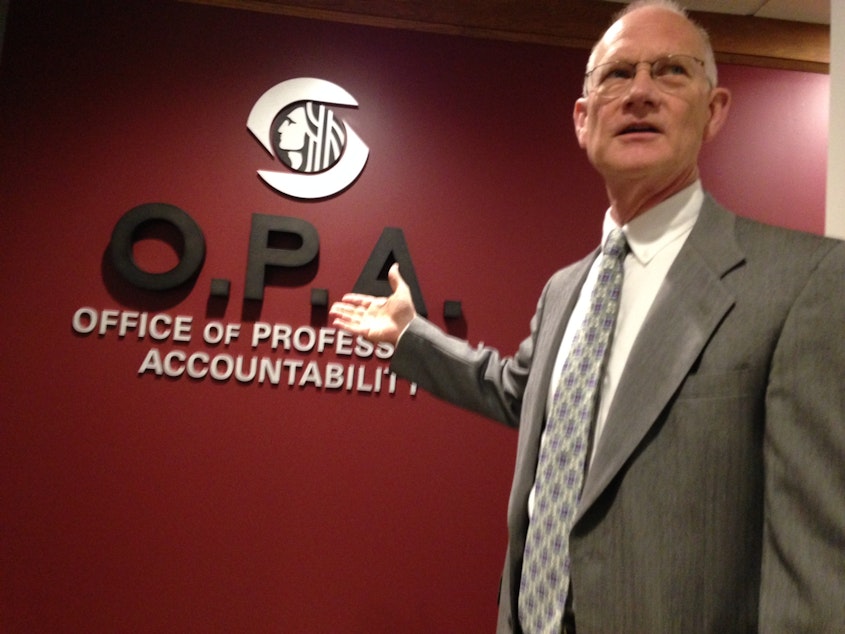Seattle Police's Oversight Office Moves Into 'More Welcoming' Space

Someone pursuing a complaint about a Seattle police officer no longer needs to enter the Seattle Police Department to do so. Instead, the department’s civilian oversight director has moved his office into a space he says will be more welcoming.
SPD investigates a lot of complaints of misconduct filed by fellow officers – they blow the whistle when they see colleagues abusing sick leave for instance, or even bigger issues. Other complaints are filed by members of the public.
According to a recent report from SPD, one pedestrian filed a complaint when an officer in a police vehicle nearly ran over him while talking on a cell phone. The complainant added that the officer then “extended his middle finger at the complainant.” The officer admitted this, and received an verbal reprimand.
Pierce Murphy is the director of SPD’s Office of Professional Accountability; they review all misconduct complaints. He said in the past, someone like that pedestrian would normally have to come to the police department to make their complaint or to be interviewed.
Murphy wanted to change that. He first moved some of his employees to Seattle’s Municipal Tower; now they’re all together in a nearby office building at 720 Third Avenue.
Murphy said getting away from the police department reassures the public that his investigations will be impartial. “We’re not siding with anybody,” he said. “We’re objective and independent. So that was the idea of getting away from the police building or the Municipal Tower.”
When you enter the new office space, there are separate waiting areas for members of the public and police officers. An investigator then speaks to the complainant in one of the meeting rooms nearby.
As Murphy showed off the new space, Seattle City Councilmember Tim Burgess said the symbolism of this move is significant. “I think it’s kind of lifting the professionalism of OPA, and communicating to the public that this is a neutral, safe place to come,” he said. He added that other cities including San Jose, Calif. and Washington, D.C. have made a similar move with their police oversight divisions.
Murphy said he recently discussed the role of his office with SPD Chief Kathleen O’Toole. “We were talking about our relationship and how we obviously have to trust each other and work together,” he said. “At the same time, recognizing that there’s got to be a healthy tension."
"She used the phrase ‘professional tension’ -- where we respect the fact that we’ve got different roles to play.”
The evolution of his office also helps satisfy the goals of Seattle’s 2012 consent decree with the U.S. Justice Department, Murphy said. The agreement aims to eliminate the excessive use of force and any appearance of biased policing.
“I just see moving into this office and creating a new culture at OPA as a first step in creating a spirit of positive accountability that I think the settlement agreement calls for," he said.
SPD is also addressing oversight issues beyond the merely symbolic, he said. Last spring Murphy complained he wasn’t notified when officers appealed his office’s disciplinary findings. Some officers had their records cleared without his knowledge.
Now Murphy said he’s being kept in the loop. He said his team is also being granted better access to investigation scenes, such as being called to all significant “use of force” investigations, including officer-involved shootings.

